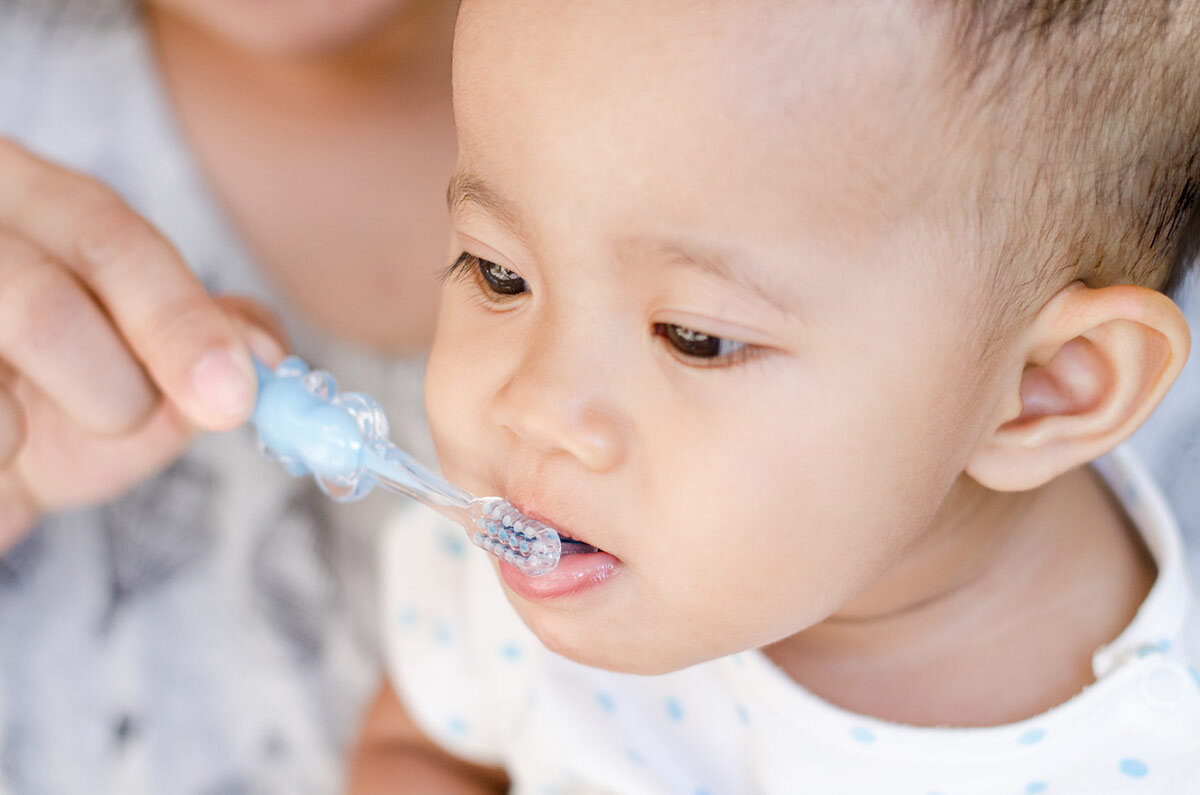The oral care habits you develop when you are young have a significant bearing on how you care for your teeth well into adulthood.

There is nothing more exciting than seeing the first tooth surface in your child’s smiling mouth, but with the first sign of teeth comes a greater responsibility for the parents to take extra care to help their child develop oral habits that will keep well into adulthood and beyond.
The evidence is clear that the type of oral habits a child develops early-on are the same habits that they carry on through life. So, as that very first tooth begins to surface, it is important to take the right steps to get your child on the path to a healthy dental future.
Baby Teeth
Even before your child’s teeth begin to surface, it is a good idea to try to desensitize the mouth as much as possible by stimulating their gums periodically with a very soft toothbrush to get them used to it.
Obviously, your baby can’t brush their own teeth. That doesn’t mean that they can’t develop bacteria and plaque in their mouths that can lead to early tooth decay and problems later.
Since both bottle and breastfeeding can cause bacteria in the mouth, it is important that you take the time daily to brush those little teeth. Make sure to use toothpaste that is kid-friendly and remember that you only need a very small amount to get those teeth clean and healthy.
Preschool Routines
By the time your child is in preschool, they should be able to brush their teeth both at night and in the morning. However, they will still require their parents’ assistance to ensure they are getting their teeth completely clean. It is also a good habit to get them to brush after meals while they are still at home.
Allow them to control putting the toothpaste on the brush so that you can teach them about the proper amount and also so that you can monitor to make sure that they aren’t using too much paste. The more control you give them, the less of a battle you will have on your hands. If you allow them independence, they are also more likely to develop a favorable feeling toward oral care because it is something they can do all on their own.
Independent Habits
As your child starts to get older, you will want to make sure that they are brushing their teeth regularly. Don’t let those oral exams slide. Bite malalignments and other issues that might lead to the need for orthodontic care will begin to surface in their preteen years. It is also a good idea to show them the correct way to floss and follow up to make sure that they are flossing daily. Once they reach this stage, they will form independent habits and become entirely responsible for their oral care. Your job is to remind them about it.
The oral care habits you develop when you are young have a significant bearing on how you care for your teeth well into adulthood. If you help your child at every stage and teach them how to care for their teeth properly, you will help them to have a great smile for a lifetime and avoid things like early tooth decay and dental cavities. Take the time early in your child’s life to see a big payoff later.
